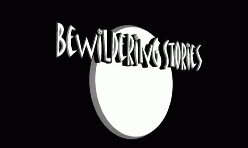Starts With a P
by Steven Utley
I broke into print in my school newspaper when I was in the seventh grade, with a poem about Hannibal (the Carthaginian general, not Samuel Clemens’ hometown). A dozen and more years later, my first professionally published poem appeared in an anthology alongside offerings by Anthony Haden-Guest and W.H. Auden, with prose pieces by (among others) Kingsley Amis and Max Beerbohm thrown in for good measure 1 — pretty heady company — and I admit now to thinking at the time, It is good to be A Poet.
Thirty years later, I’m still proud of the poem and the company it kept; I’ve published many more poems, including two collections, This Impatient Ape and Career Moves of the Gods,2 and even won praise from one reviewer for devising a rhyme for “Quetzalcoatl”; and I cannot help agreeing with anyone who says inspiring things about poetry, as George Santayana does in The Last Puritan:
Poetry is something secret and pure, some magical perception lighting up the mind for a moment, like reflections in the water, playful and fugitive. Your true poet catches the charm of something or anything, dropping the thing itself.
Or Carl Sandburg:
Poetry is the journal of the sea animal living on land, wanting to fly in the air. Poetry is a search for syllables to shoot at the barriers of the unknown and the unknowable. Poetry is a phantom script telling how rainbows are made and why they go away.
Somehow, I can’t not write poetry, even if I fail repeatedly to catch the charm of something or anything; the corollary to John Keats’ remark that “If poetry comes not as naturally as leaves to a tree it had better not come at all” is, When ya gotta, ya gotta.
But ooh ah er I cringe away from the Poet label almost as though I were a snail and it were salt — as though it fell between Pedophile and Pyromaniac, which, come to think of it, it does. I can say that I am a Short-Story Writer, and say it proudly even to a Novelist, and I can also say, albeit rather sheepishly — given my sociopolitical leanings — that, in common with nearly every other not lavishly successful freelance scrivener, I am by necessity a Running-Dog Lackey Of Capitalists. If pressed on the matter of poetry, however, I will resort to self-deprecation in self-defense, admit only to being a doggerelist with a small d, or a versifier. But never A Poet, nor even a poet — no, no, hot tongs and the thumbscrew cannot drag the admission from my lips.
I think that people who declare themselves to be Poets must have tremendously greater self-confidence than I, whether they are able to back up their claims with Poetry (I’m talking Edgar Lee Masters, Robert Graves, Borges: you know, heavy-hitters) or only with attitude and spiral-bound notebooks full of unpublished, spittle-flecked scribblings. Any coffee shop worthy of the name always has at least three of the latter on the premises during business hours, not including the one behind the counter.
Poets, like mimes, seem not to understand how the rest of the world really views them — particularly the rest of the world of letters. That man of letters, H.L. Mencken, was as much of a man of as many letters as you could shake a stick at. Yet, of poets, he wrote,
Just as all of us, in utero, pass through a stage in which we are tadpoles, and almost indistinguishable from the tadpoles which afterward become frogs, so all of us pass through a stage, in our nonage, when we are poets. A youth of seventeen who is not a poet is simply a donkey: his development has been arrested even anterior to that of the tadpole. But a man of fifty who still writes poetry is either an unfortunate who has never developed, intellectually, beyond his teens, or a conscious buffoon who pretends to be something he isn’t — something far younger and juicier than he actually is.
Well, that can hardly be construed as encouragement by this fiftysomething former seventeen-year-old, and even it pales in comparison with what William Congreve had to say on the subject:
Turn pimp, flatterer, quack, lawyer, parson, be chaplain to an atheist, or stallion to an old woman, anything but a poet; for a poet is worse, more servile, timorous and fawning than any I have named.
If I could travel backward through time and whisper advice into the ear of my seventh-grade self as he prepared to set pencil to paper and inscribe his immortal lines about Hannibal, I might warn of the perilous road ahead. “Never be a poet,” I might say. “No one holds poets in much esteem until long after they’re dead — if then. Poets are always broke, and they starve in garrets, or succumb to wasting diseases, or drink themselves to death. A lucky few fall off boats and drown.”
And this young edition of myself might reply, “What, then, should I become?”
“Pornographers always find work.”
1 Harry Harrison and Brian W. Aldiss, eds. Best SF: 1973 (New York: G.P. Putnam's Sons, 1974)
2 Published in 1998 and 2000, respectively, by Anamnesis Press, San Francisco
Copyright © 2004 by Steven Utley

